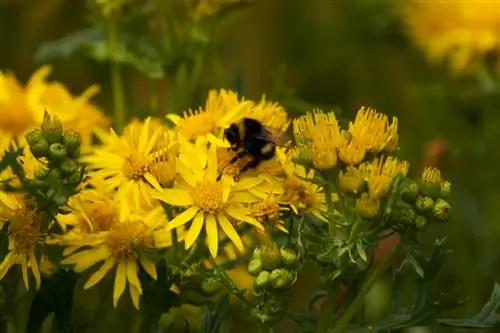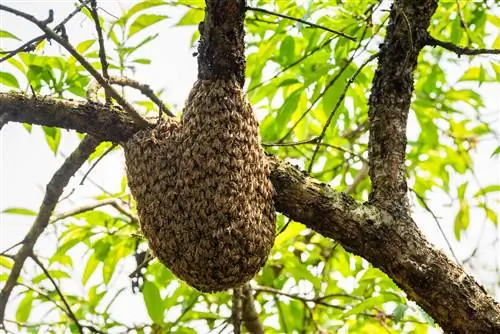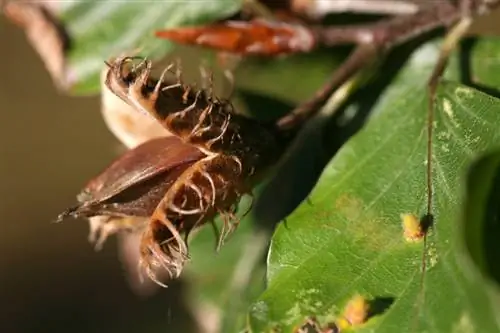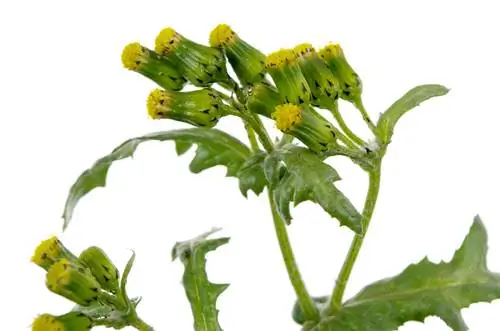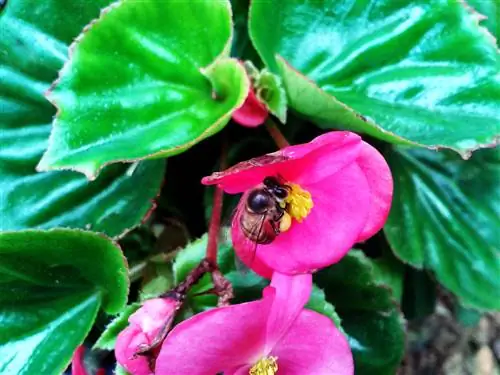- Author admin leonars@hobbygardeners.com.
- Public 2023-12-16 16:46.
- Last modified 2025-01-23 11:20.
The ragwort repeatedly makes the headlines because of the toxins it contains. The pyrrolizidine alkaloids (PA) have also been detected in honey several times. The substances accumulate in the body and can be toxic to humans and lead to liver damage if contaminated foods are consumed regularly.
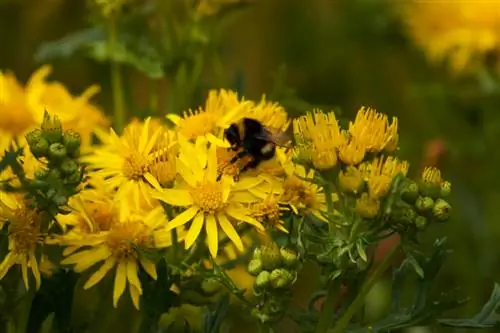
Does ragwort affect bees and honey?
Bees usually avoid ragwort because it offers little nectar and other plants are preferred. However, they will ingest pollen from the herb when no alternative is available. This can lead to PA-contaminated honey, which poses he alth risks if consumed regularly.
Bees avoid the herb
The ragwort serves as a food source for many other insects such as butterflies and flies, but hardly for bees. If more interesting nectar plants are available, bees will not even fly to the ragwort because the nectar yield of the bright yellow flowers is too low.
If the hard-working pollen collectors cannot find any other food plants, they are forced to harvest the pollen of the ragwort. The little hummers excrete the toxins straight away. However, the honey can be contaminated.
Food limits
In addition to honey, traces of PA have also been detected in eggs and milk. Experts emphasize that every microgram of the substance is too much, as PA accumulates in the body and gradual damage can occur. The toxin may even cause cancer. For this reason, the EU is currently discussing the introduction of a uniform limit value.
However, in a recent analysis of 126 honey samples, only seven samples were above the recommended limit of 140 micrograms of PA per kilo. No PA was detected in almost half of the samples.
Advice for hobby beekeepers
When the ragwort is in full bloom, for many beekeepers the honey harvest in our agricultural landscape is almost over. In order to avoid PA contamination of the honey, experts recommend extracting the honey before the ragwort blooms and leaving the rest of the summer crop to the bees as natural food.
The PA content of honey is harmless to insects and, unlike horses and cattle, they are not harmed.
Tip
If you don't want to miss out on tasty summer honey and at the same time make sure that there is no PA in the honey, you should get it from a local beekeeper. Ask whether their beehives are located near a larger ragwort population.

